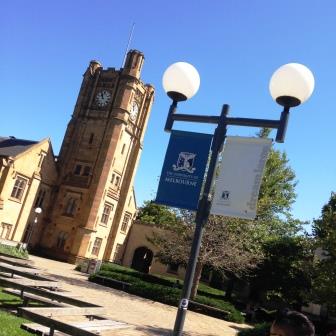Auditory Neuroscience Unit at the University of Melbourne
The primary aim of the Auditory Neuroscience Unit at the University of Melbourne is to provide a better understanding of the normal anatomy and physiology of the mammalian auditory system, with a view to designing intelligent therapies for those with hearing loss. Projects within the unit straddle basic, translational and clinical research and these can be tailored to suit those interested in either wet laboratory or clinical research.

Cochlear implants function by electrically stimulating residual auditory neurons to facilitate hearing in severe-to-profoundly deaf individuals. The efficacy of this device, therefore, depends on a critical number of surviving neurons.
Stem cell transplantation therapy is emerging as a potential strategy for auditory nerve rehabilitation, as differentiated stem cells may provide a source of replacement auditory neurons to the deaf cochlea. The successful engraftment of stem cells into the cochlea requires both the directed growth of new processes and the formation of functional connections with existing structures, and Melbourne is investigating these questions using their published in vitro and in vivo experimental models.
The Melbourne Auditory Neuroscience Unit is particularly interested in whether transplanted stem cells are capable of making functional connections in the cochlea and the brainstem, thereby restoring a functional neural circuit. In addition, they are currently developing new magnetic resonance imaging methods in order to visualize the integrity of the relevant structures in the mammalian and human auditory brainstem.
Audiology at the University of Melbourne
The Master of Clinical Audiology at the Melbourne Audiology School focuses on developing professional skills through a large program component of comprehensive clinical training. Clinical skills are supplemented by coursework and lectures that introduce students to graduate-level research methods, while maintaining a strong level of scientific acumen expected of students in the health sciences at the University of Melbourne.
The program enables individuals who have completed a bachelor’s degree in a related field to qualify as audiology professionals in two years and obtain a master’s degree. The Master of Clinical Audiology at the University of Melbourne is accredited by the Audiological Society of Australia, and graduates are eligible for full membership in the organization.
Program: Master of Clinical Audiology
Location: Parkville campus, Melbourne, Victoria
Semester intake: February
Duration: 2 years
Application deadline: TBA. For the 2016 intake, the application deadline was October 31, 2015.
Apply to the University of Melbourne Audiology School!
*

































Ask A Question
Ask us about your program of interest, or if you have a question about our services.
CONTACT US TODAY